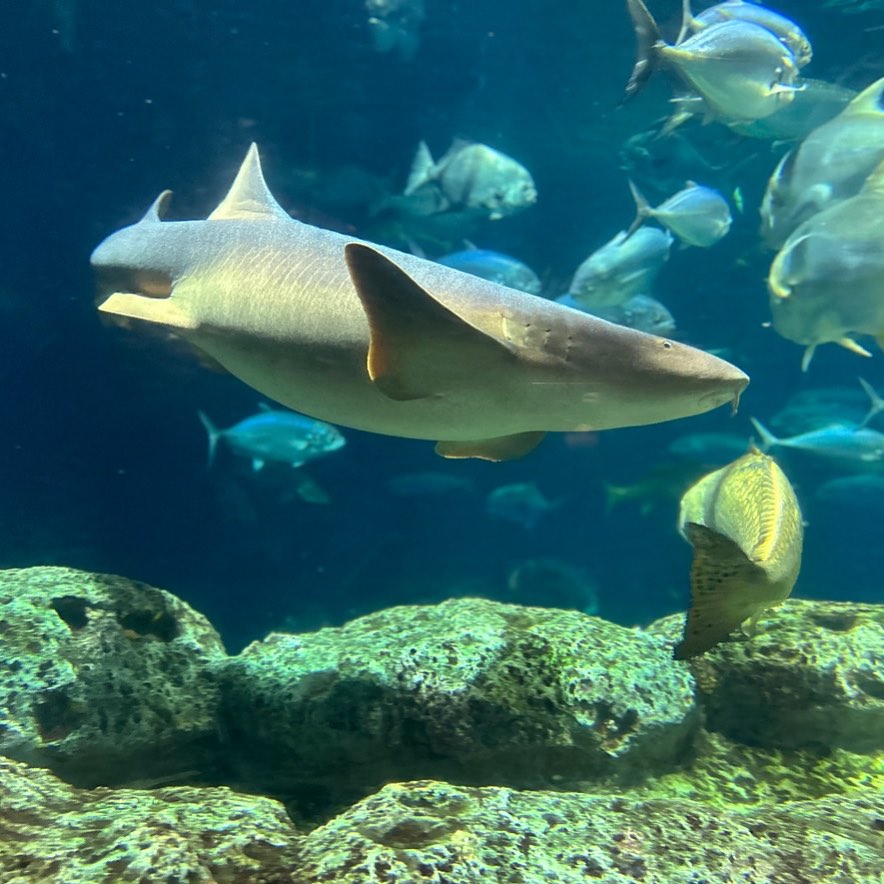Summary:
1. The ecological importance of sharks in our oceans
2. The threats faced by shark populations
3. How the public perception of sharks influences conservation efforts
Sharks On the Mind: The Future of Elasmobranchs on the Line
You know the effects of catching a cold or catching feelings, but have you ever stopped to think about the consequences of catching sharks? Despite their fierce reputation, sharks play a crucial role in maintaining the delicate balance of our oceans. Join us for our upcoming Holland Lifelong Learning session, “Sharks on the Mind: The Future of Elasmobranchs on the Line,” where we will delve into the captivating world of these magnificent creatures.
We are honored to have Jasmin Graham, president and CEO of Minorities in Shark Sciences (@miss_elasmo), as our guest speaker for this insightful session. Jasmin and her organization are dedicated to breaking down barriers and making science accessible.
Have you ever wondered why sharks are so important? It turns out that these sleek predators play a vital ecological role in our oceans. As apex predators, they help regulate populations of other marine species, thus maintaining the balance of the entire ecosystem. They keep prey populations in check, preventing overgrazing and ensuring the survival of other species. By targeting weak or diseased individuals, sharks also contribute to marine populations’ overall health and genetic diversity.
However, sharks are not just important for ecological reasons. They have captivated human imagination for centuries, often eliciting fear and awe. Movies like “Jaws” have perpetuated a negative perception of sharks, leading to widespread misconceptions and fear. This fear has had detrimental effects on shark populations, as they are often hunted and killed out of fear or misunderstanding.
Recently, there has been a growing movement to change public perception and promote shark conservation. This is where organizations like Minorities in Shark Sciences come into play. Jasmin Graham and her team work tirelessly to bring shark science to the forefront and break down the barriers that prevent minorities from accessing opportunities in the field. By making science accessible for all, they hope to inspire the next generation of shark enthusiasts and conservationists.
But sharks are facing nufaceeats that continue to put their future on the line. Overfishing, driven by the demand for their fins, meat, and other products, remains a significant issue. Shark finning, the practice of removing a shark’s fins and discarding the rest of its body at sea, has devastating consequences and poses a serious threat.
In addition to direct human activities, sharks also face challenges from habitat loss, climate change, and pollution. These factors can disrupt their natural behaviors, migration patterns, and reproductive cycles, further impacting their populations.
So, what can be done to secure the future of elasmobranchs? Education and awareness are key. By spreading accurate information about sharks and debunking common myths, we can help change public perception and encourage conservation efforts. Engaging with organizations like Minorities in Shark Sciences can help promote diversity and inclusivity in science, ensuring a broader range of perspectives and ideas to tackle conservation challenges.
Individual actions also matter. Supporting sustainable seafood choices, reducing plastic waste, and advocating for marine protected areas are effective ways to contribute to shark conservation. By making conscious decisions, we can play a part in preserving the future of these remarkable creatures and the oceans they inhabit.
In conclusion, sharks are not just creatures of fascination; they are an integral part of our oceans and deserve our protection and respect. Join us on October 10 for “Sharks on the Mind: The Future of Elasmobranchs on the Line” as we embark on a journey to uncover the true importance of the book and explore Howard’s future. Together, we can ensure a thriving ocean ecosystem for generations to come. Don’t miss out on this exciting educational opportunity; get your ticket now via the link in our bio!
*****
Source Description
You know the effects of catching a cold or catching feelings, but what about (by)catching sharks? Reeling in sharks, even accidentally, can have lasting impacts. Join us for our next Holland Lifelong Learning session, “Sharks on the Mind: The Future of Elasmobranchs on the Line,” on October 10 as we uncover the role of sharks in our oceans. Wade through these answers and more with Jasmin Graham, president and CEO of Minorities in Shark Sciences (@miss_elasmo), an organization committed to making science accessible for all! 🦈
Buy tickets via the link in the bio!


